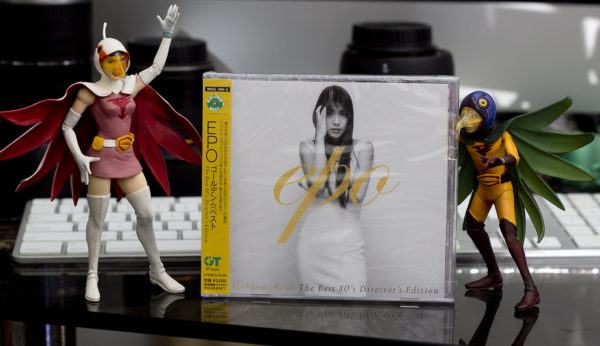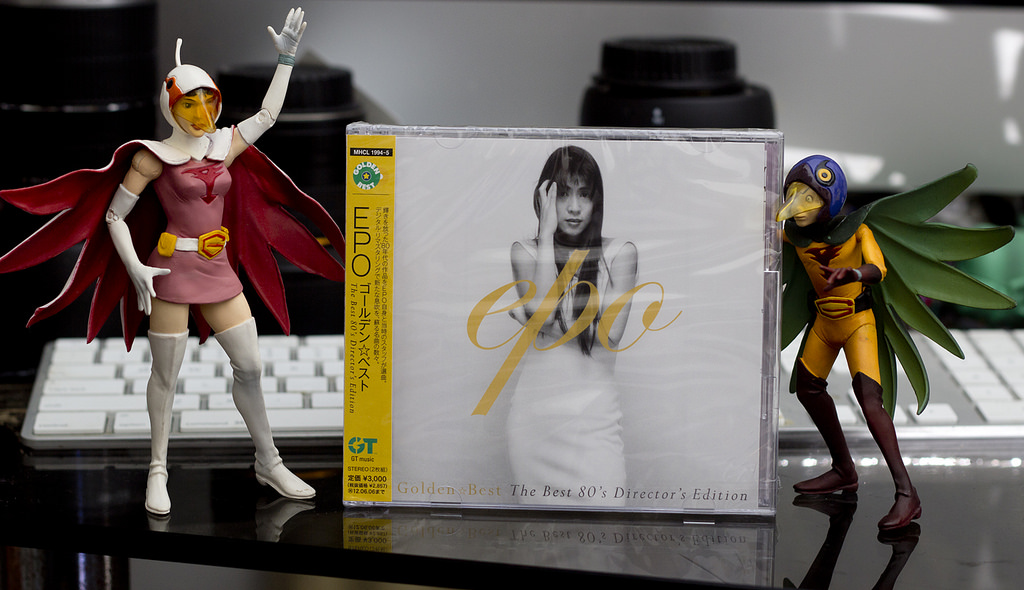
Groovy basslines, artful falls, four-to-the-floor beats with cheesy claps, flamboyant synths and sensitive fades: that is the sound of disco, the dance phenomenon that took the world by storm in the ‘70s and ‘80s, sweeping every nightclub with its contagious hooks and catchy beats.
East Asia, with the trauma of World War II not too distant but not too close, was not immune to the lavish vibes of disco. It was the 1980s, and Japan, feeling a sense of cosmopolitanism, was living like it never had before; “The Lost Decade” of the ‘90s (失われた十年 ) was yet beyond the horizon. The sound of urban decadence: that was the aesthetic of city pop, the name given to Japanese disco. It’s unfortunate that city pop isn’t listened to more today — I guess saying “I listen to ‘80s Japanese disco” gives off a very particular flavor of that musically-holier-than-thou hipster vibe. But there’s a lot of gems being rediscovered in old records of the time, and thankfully, many of them are online today for our enjoyment.
1. Mariya Takeuchi (竹内 まりや), Plastic Love
That artsy guitar solo in the middle is pretty short, but it’s to die for. This is to say nothing of Takeuchi’s smooth voice and delivery — it’s wonderfully light, yet longing. The chords, played on electric and acoustic piano, are so archetypally disco: warm and velvety. I understand exactly one line of the song, before it all fades away: “I’m just playing games — that’s just plastic love.” It’s a beautiful way to close out a beautiful track.
2. Miki Matsubara (松原みき), 真夜中のドア (Mayonaka no door)・Stay With Me
How is it possible for a chorus to be so catchy? Even now, I can hear those soaring melody lines and strings, that first “Stay with me …” — so melancholy despite the upbeat feel. There’s a very nice key change in the middle that leads right into a quick and simple sax solo — then we’re right back home, back to the wistful stay-with-me’s and mournful strings.
3. Tatsuro Yamashita (山下たつろ) — Music Book
The muzak-like intro, featuring guitars, sax, and vocal woo-woo-woo’s, is a delightful start. Yamashita’s crooning vocals are the soul of the track — not too heavy or dragging, yet emotive enough to make you listen. There’s perhaps some inspiration from gospel and soul in the long and short woo’s that Yamashita just loves to hang on to, and to see — or rather hear — its place in the Japanese musical aesthetic is an amazing reflection on the cosmopolitanism of city pop. The rest of Yamashita’s album “For You” is absolutely worth listening to as well: 35 minutes of the sound of ‘80s Japan, ready for your easy-listening or dancing needs.
4. Toshiki Kadomatsu (角松敏生) — If You Wanna Dance Tonight
This funky, cute beat sounds like it was scrapped together from stereotypes of ‘80s music, pulled straight from the nostalgia-happy soundtracks of “Stranger Things” or “Guardians of the Galaxy.” And the infectious hook — “If you wanna daaaaaance … tonight!” — is absolutely unforgettable. The feeling of euphoria reminds me of the classic “Move Your Feet” by Junior Senior — you just can’t help but get up and dance when you start feeling the beat. Listen to this song if you need a pick-me-up.
5. Mondo Grosso — ラビリンス (Labyrinth) feat. Hikari Mitsushima (満島 ひかり)
This last track is most certainly not ‘80s city pop, but I’m putting it here anyway because I want to. More seriously, this is a pretty recent track, but it still reflects that unique Japanese urban aesthetic that made city pop what it was. It reminds me of a less grungy version of the pop-garage house of Britain crossed with Inner City’s Detroit techno classic “Big Fun” — a new, electronic Japanese take on big-city, cosmopolitan music. After all, Mondo Grosso’s name literally means “big world” in Italian. Mondo Grosso himself has been around for a while. He’s one of Japan’s biggest DJs today, and has been dropping house tracks since the late ‘80s, when house was in its infancy. He’s certainly old enough to have listened to city pop in his youth. A stickler for labels might call this one deep house, but I hear the characteristic sound of disco chords and the four-to-the-floor groove still. Most of all, the soulful, plaintive vocals sell the track — I could listen to that voice all day. House started as a descendant offshoot of disco anyway, so it’s not particularly surprising that Labyrinth has inherited some of those disco vibes.
I can’t understand a thing in these tracks, except perhaps a word or two here or there, an admission that’s likely to earn the consternation of my former Japanese professors, but that’s not what the music is about for me. It’s about vibes and feelings, not words.
My only regret from listening to city pop? I wish that I had committed to studying abroad in Japan — but that’s fine for now. The place can wait; for me, the soul is in the sound.
Contact Trenton Chang at tchang97 ‘at’ stanford.edu.
